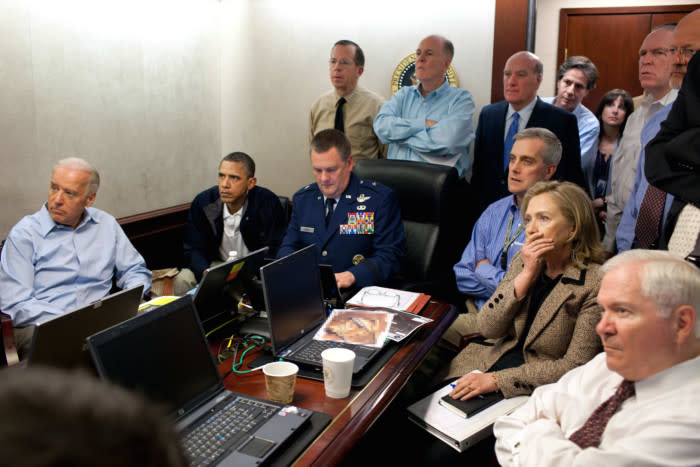 The Cutline
The Cutline‘Gruesome’ Bin Laden death photos should be secret, White House says
The CIA has 52 photographs or videos that were taken of Osama bin Laden after he was killed on May 1 in the American raid on his compound in Islamabad, Pakistan, according to the Justice Department. But the White House has asked a court to reject a Freedom of Information Act lawsuit that is seeking their release to the public.
In a filing, the Justice Department argued that Bin Laden's death photos are classified and "wholly exempt from disclosure" and that their release could incite terrorism against American citizens, particularly overseas.
John Bennett, the head of the CIA's clandestine service, said in a statement to the court that the public release "would provide terrorist groups and other entities hostile to the United States with information to create propaganda which, in turn, could be used to recruit, raise funds, inflame tensions, or rally support for causes and actions that reasonably could be expected to result in exceptionally grave damage to both the national defense and foreign relations of the United States." Bennett added that the images are "quite graphic, as they depict the fatal bullet wound to (bin Laden) and other similarly gruesome images of his corpse."
Judicial Watch, the watchdog group that filed the original suit, contends the images are part of the public record. Similar FOIA lawsuits seeking release of the photos have been filed by dozens of news organizations.
"We shouldn't throw out our transparency laws because complying with them might offend terrorists," Tom Fitton, president of the group, said in a statement. "The historical record of Osama bin Laden's death should be released to the American people as the law requires."
According to the Associated Press, which filed its own request to review the materials, the Obama administration appears to be trying to delay the process. "Unnecessary bureaucratic delays harm the public interest and allow anonymous U.S. officials to selectively leak details of the mission," the news service argued in its appeal.


